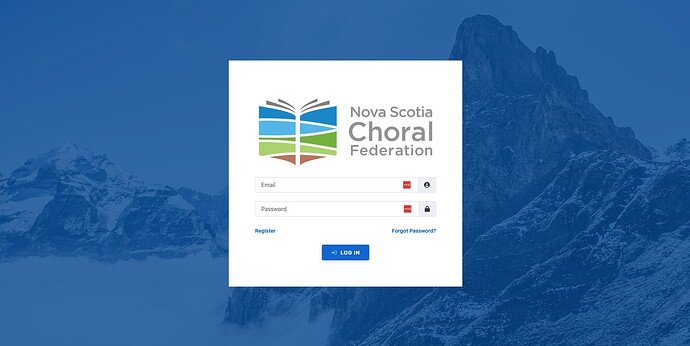Hello everyone,
We are indeed living in exciting times on the Tape platform and it’s been incredible to be a part of it. As is most likely the same with a lot of you, we have been working diligently to discover all of the features within Tape that can help us achieve all the same goals that a lot of us developers have already been achieving in Podio and PWA and adjust our strategies to suit Tape’s incredible Automation engine.
One of Syncrony’s biggest passions has been building custom web apps to act as companion applications to a low code system. If we take Wordpress as an example, it has two primary interfaces: a frontend and a backend. While Tape makes an amazing backend for data storage and automations, most often additional frontends are desirable in order to better organize related data (although the new Dashboards are freakin’ sweet) and to provide granular access to different user roles, for instance, a client. Some data types are so complex that additional UIs are the best way to interact with the data, especially when entering many-to-one related records, like line items.
We have converted our own PHP-based API that we were using to catch hooks from Podio to catch from Tape instead. It’s actually been a lot easier to develop, because we only manage one developer API key rather than managing an oAuth access token for each app. The API installs hooks and processes Tape fields into SQL columns for insertion into SQL. This is our preferred method (deploying our API on DigitalOcean App Platform takes a few clicks, and they manage the SQL data as well) and it works for us. This process could easily be replicated using other API integration tools like Make or Zapier. We would be happy to consult with anyone who would be looking for this functionality.
While we have built many systems using Procfu Mini Apps and enjoy what is possible there, we also find it easier most times to build from scratch using raw Javascript. You can make all the UI choices you want with fewer limitations and gain access a ton of UI/UX libraries which can help speed the process along even more.
QUICK TANGENT…
It’s actually never been easier to build and deploy UIs and it’s only getting easier by the day. Our preference has been Nuxt 3, a SPA web framework written in Vue.js, but if anyone’s interested in learning how to code your own UIs, I highly recommend you take a look at Svelte and do their awesome tutorial. Svelte is having a meteoric rise as a top tier framework and v5 just landed this month with incredible new features.
We are also closely watching developments in Cloudflare’s new backend framework. New features are being launched every day, we’re seeing it in real time. There are lots of Javascript driven tools available there to build your own APIs, handle async tasks with a queue manager, and lots of other cool features. Cloudflare can also deploy static front ends (like those built using Nuxt 3 or Svelte). You can achieve an incredible amount just on their free tier.
I enjoy playing with new toys and both of these have been exciting journeys and I just wanted to geek out on them for a moment!
BACK TO THE SHOW…
By syncing Tape data with SQL, you make it more readily available to a powerful frontend that can do anything that Tape’s UI cannot do. As I’ve said, there’s many ways to achieve this. There’s also many other available OOTB APIs to let you access the SQL data that a frontend can then feed off. If you haven’t already checked them out, you can build your own serverless, SQL integrated API using only Procfu Code Blocks. You also gain immediate access to all of Procfu’s other functions which makes coding even more efficient.
There are considerations to be made regarding security and user management, but these are all minor and can also be solved in a number of ways. Again, we are happy to consult on these topics.
We just finished our first major Tape build that has a SQL bridge and companion application installed, and because it has no data in it yet and the portal is actually a public facing application (one of our first, you can go register for it right now), I thought I would share our journey with you. Please give this a watch if you’re interested in learning more.
https://www.loom.com/share/367422c4d361433fa66299f5d2610b8e
A huge thank you to the Tape team, @Stefan @Leo and especially @Tim for all his efforts in helping me test the API to get to this point.
Cheers and happy developing!
Andrew
PS: If you were so inclined, you could register right now at https://portal.nscf.ca and sign up for an individual membership, and if you did, please know that you would be supporting one of the best non-profit organizations in Canada that makes a difference in so many people’s lives.
